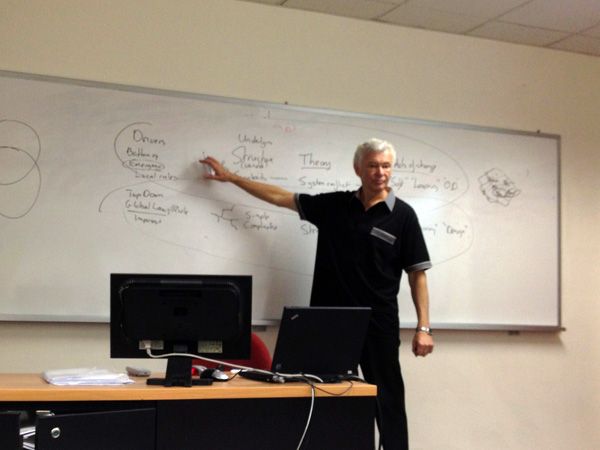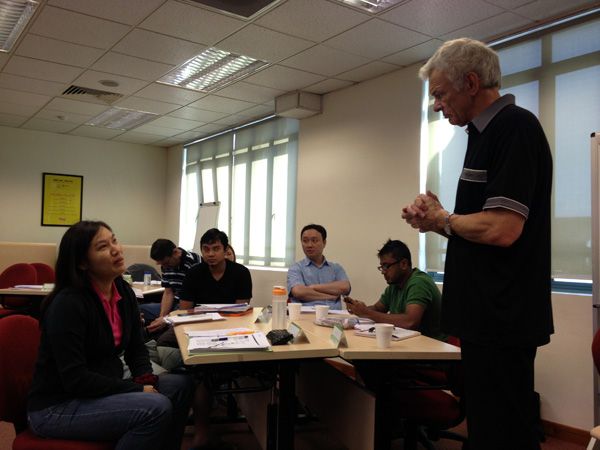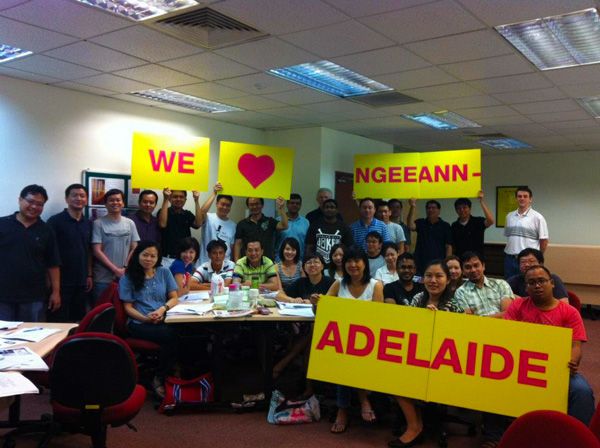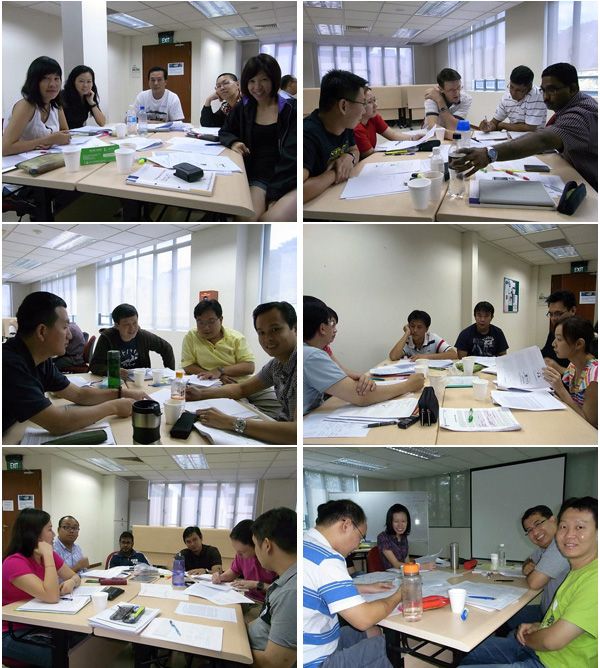The Management of Change subject this year was taught by Dr Chris Smith. This is my second subject with him (the first being Strategic Management). There is something distinctive about Dr Chris style of teaching which makes him outstanding. I always look forward to classes with him as the concepts he taught will remain with us for a long time (maybe for life) and preconceptions which we held previously are shattered in his classes. Management of Change is one such subject which greatly define the pinnacle of MBA lessons and here I shall share on the essence of it.
The course weigh-age is as follows: 30% for the final class exams, 20% for in class group case studies and 50% for the individual critical analysis assignment.
Intensive 1
In our intensive 1, we cover the main topics of Change Models, Understanding the Complex World, Evolution and Futurizing. We begin by understanding on the views towards strategic change, and it is amazing that everyone has different perspective on change. The two fundamental frameworks of change were explained, that being of the E and O theories towards change. We ended our Friday intensive with two case study discussion of Qantas and a fictitious company operating in a corruption prone country. In the photo below we have Dr Chris explaining to us on the theories and how everything links together.
The course weigh-age is as follows: 30% for the final class exams, 20% for in class group case studies and 50% for the individual critical analysis assignment.
Intensive 1
In our intensive 1, we cover the main topics of Change Models, Understanding the Complex World, Evolution and Futurizing. We begin by understanding on the views towards strategic change, and it is amazing that everyone has different perspective on change. The two fundamental frameworks of change were explained, that being of the E and O theories towards change. We ended our Friday intensive with two case study discussion of Qantas and a fictitious company operating in a corruption prone country. In the photo below we have Dr Chris explaining to us on the theories and how everything links together.

On Saturday, three different types of systems were explained and they are Simple systems, Complicated systems and Complex systems. We viewed a video on the New Coke which allow us to deeply understand on the implications of certain small changes, will result in unintended consequences to the entire system. Dr Chris gave a very interesting quote and it is "Once you have a reality in your head, you do not see anything else except for results that prove it." We discussed extensively over it and I feel this is the most important aspect of the MBA programme - students and lecturer discussed and reason from different perspective.
Here is a photo of Dr Chris discussing with a fellow student during break time.

Dr Chris proceeded on to the topic of evolution with this phrase "Many people think you can control / change things, but a large aspect of it is due to luck." In military battles, whether you survive or is shot dead by a stray bullet is dependent on your luck (whether you are at certain location at certain time). The generals who won the battle have been described by their brilliant strategies and geniuses. There were many other examples which was mentioned. We move on to the Darwinian and Lamarckian theories next and did a case study of the population change in gas stations.
The final topic on futurizing is the most interesting in intensive 1. If we were standing at the present looking at a known past, we can easily find out what happen and why it happen. On the other hand, if we are standing in the past and were faced with several possibilities and many casual factors, which option do we choose? There is always this element of risk and uncertainty. We ended the lesson with a company named Long Term Capital Management (LTCM).

Dr Chris shared with us many jokes through the entire intensive which kept the class very lively and interactive. There was never a moment it was bored and before we know it, our first intensive is over.
Intensive 2
We start of the second intensive with an understanding of the differences between what we think, what we feel and how we behave. There are somethings we can't change such as our psychobiological and psychosocial characteristics. These are what we are born with and brought up with. But we are able to change our context. Surprisingly, a large proportion of our behaviours are affected by our environment and people (context). A good example is the case of Lynndie England. We can do a comparison between the strength of our Situation vs the strength of the Person. The Situation is usually negative skewed and people are usually normally distributed. Thus only few people who are strong is able to overcome the Situation.
The topic of conformance and obedience come up subsequently. Let's take a look at an asch experiment on candid camera below.
There are many interesting videos on how people react in different context. Dr Chris is a clinical psychologist by training and is able to relate vividly to many of these cases.
We went on to view the Piper Alpha disaster on how group pressure and group culture makes it difficult to change.
Dr Chris share with us several useful tools in recognizing Change Failure and methods towards Change Success. To wrap up our successful change, we watched an inspiring video on 'Who move my cheese?' below.
While working on our final group case for the day, Gayle went around taking photos of us working together. And here we have below.

The second intensive completed as fast as it begins. It is my second and last course with Dr Chris. In my entire MBA program, Dr Chris has left the deepest impression in my learning. It strike deep into the fundamental assumption we have in life and he tackle the most important aspect of learning - critical thinking. I had attended courses on Critical Thinking back in NUS but only under Dr Chris, do I deeply appreciate the meaning of critical evaluation.
For our assignment, we are given an article here:
http://sps.org.uk/library_show.php?id=332
and is told to critically evaluate it. In the past, I have always look at published articles as having been vetted under stringent editorial requirements and only the best get published. But Dr Chris told us not to accept any theories and articles at face value. We are to understand what is the underpinning theories and models which give rise to the explicit theories the author is expounding. This is a unique learning experience.
In this post, I selectively shared on the learning from class. If you are fascinated by the gist of the lesson, best way is to sign up for it
No comments:
Post a Comment
Note: Only a member of this blog may post a comment.